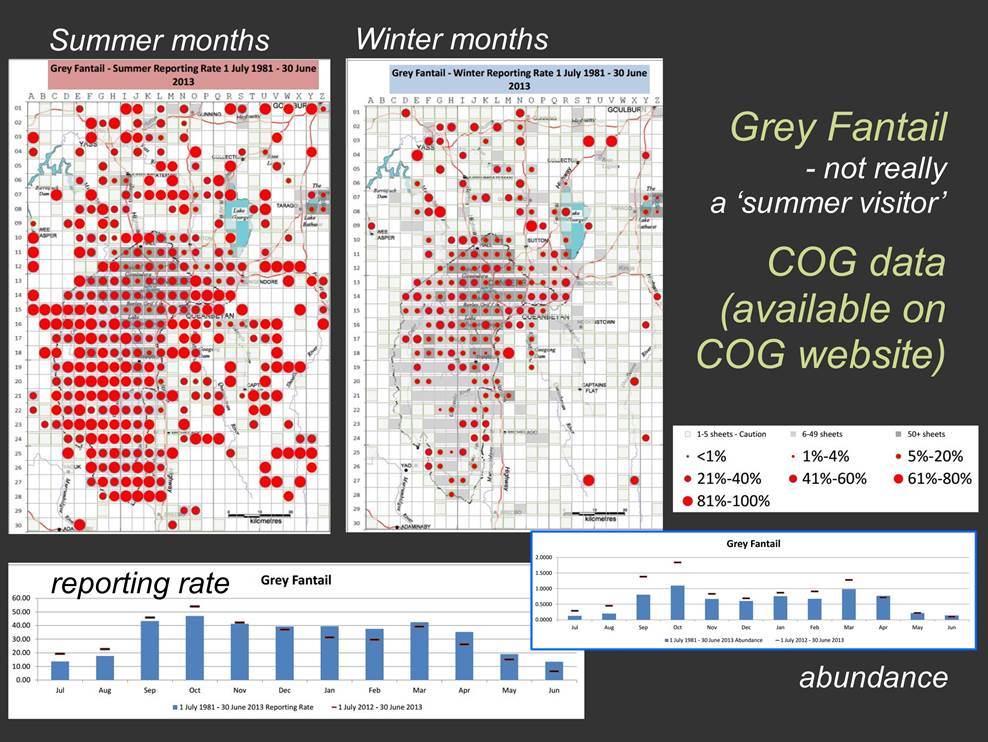Nicki may be correct in using ‘summer migrants’ for relocating G Fantails, but their movements seem to be variable. There is a traditional view among older Canberrathologists that the G Fantail is a summer visitor
eg Stephen Marchant re his 1964-1968 surveys:
“summer visitor. First arrival 10 September 1966”.
The current labelling on the COG website is the more accurate -
‘Common breeding resident. Much of the population of the ranges migrates in winter. Together with some from the tablelands.’ That is taken from Steve Wilson’s book. That book uses ‘tablelands’ a lot, the meaning
of which is not entirely clear. It seems to be all of the ACT, and possibly a more extensive area, that is not ‘the ranges’. The COG website (below) and the BLA atlas show a marked thinning out of the local GF population in winter, the atlas showing a corresponding
thickening in north Queensland.
Nonetheless, quite a few remain here in winter. Evidence of this is their frequent presence in the mixed feeding flock, largely an autumn/winter phenomenon. Where they are locally in the non-breeding months
must surely be determined by food (small flying insects) and hence rainfall, consequently variable year to year. Best spots are perhaps the denser vegetation on Mount Mugga and Black Mountain – and in particular the lush green tangles along the Molonglo
and other local watercourses.
This is not intended to overlook the sometimes spectacular ‘move through’ of large numbers of this species. Barbara Allan has just mentioned to me a morning when 500 GFs were in view at her spot on the Pinnacle,
only to be gone an hour later. Large numbers of transients are certainly around at the moment.

From: Nicki Taws [
Sent: Wednesday, 13 April 2016 7:12 AM
To:
Subject: [canberrabirds] K2C bird surveys 10 April
At the same time, late-departing summer migrants were still enjoying the warm days including
Dusky Woodswallow (up to 40 at two of sites), Grey Fantail, Black-faced Cuckoo-shrike and
Rufous Songlark skulking quietly in the grasslands.
Nicki Taws
0408 210736

